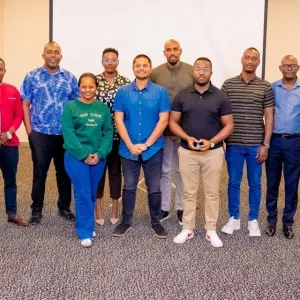Building Resilience: Investment Blueprints for Rwanda’s Smallholder Farmers and Value Chains
Agricultural risk management (ARM) is crucial for smallholder farmers who bear some of the greatest impacts of climate risks but often lack the tools and resources to protect their livelihoods. Recognizing this, the CGIAR Hub for Sustainable Finance (ImpactSF) led the Clim-ARM project – funded by the Bill & Melinda Gates Foundation and implemented in partnership with Rwanda’s Ministry of Agriculture and Animal

Building Resilience: Investment Blueprints for Rwanda’s Smallholder Farmers and Value Chains
Agricultural risk management (ARM) is crucial for smallholder farmers who bear some of the greatest impacts of climate risks but often lack the tools and resources to protect their livelihoods. Recognizing this, the CGIAR Hub for Sustainable Finance (ImpactSF) led the Clim-ARM project – funded by the Bill & Melinda Gates Foundation and implemented in partnership with Rwanda’s Ministry of Agriculture and Animal Resources (MINAGRI) – has developed an innovative framework to support farmers. This collaborative and data-driven approach aims to transform how agricultural risks are managed in Rwanda, offering new opportunities for public and private sector stakeholders to engage in high-impact investments.
At the core of this initiative is the creation of investment blueprints tailored to the unique needs of different regions in Rwanda. Developed through extensive workshops across the country, these blueprints prioritize ARM solutions that enhance rural livelihoods and value chains, ensuring that the small-scale producers that sustain the country’s food production are equipped to manage risks and increase productivity.

